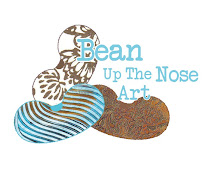I'm grateful for freedom.
Which, often, we don't feel like we really have.
Because we often see our lives as limited by circumstances beyond our control . . . health problems, lack of time, lack of funds, lack of opportunites.
Those things are real. They exist. But how we operate within them, around them, about them, and what we decide to do with them, is up to us. Freedom.
Want some inspiration in this regard? Study Harriet Tubman.
 The woman is unbelievable.
The woman is unbelievable. Most obviously, she wasn't born free.
Harriet was born into slavery, and was hired out to other households -- away from her own family -- to weave, to gather muskrats from traps, and to mind babies from the time she was a tiny child herself. We're talking six, seven, eight years old.
When she was around 12, she was hit in the head by a scale weight that an overseer threw at an escaping slave. It hit Harriet instead. She barely survived. And from then on, she had "spells" -- which medical experts today believe were seizures from temporal lobe epilepsy.
Undaunted by her circumstances -- a female slave who could not read or write, and who had to operate around spells that would freeze her in the middle of whatever she was doing -- Harriet escaped Maryland slave life by running away on her own, in her 20s.
Not satisfied with that, she returned to Maryland again and again, to bring family members and others out of slavery. She endlessly raised funds for fugitive slave communities in Canada and the northern states. She lectured for the abolition movement, and for the women's suffrage movement.
That wasn't enough, either. She served as cook, laundress, nurse and scout for the Union army in the Civil War. She planned and led a military expedition that freed 700 slaves.
After the war, she was thrown from a train by a conductor fighting with her. It took her months to recover. She still went on to raise money and consciousness about poverty and women's rights.
When she was in her 70s, she decided she'd had enough of the headaches associated with her "spells," and underwent brain surgery. Without anesthetic. She bit on a bullet, like the soldiers she'd nursed during the Civil War.
Harriet lived another 20 years after that -- still raising funds and consciousness.
Harriet's been one of my favorite humans since I found this biography of her in third grade:
Thank you, Ann Petry, and thank you, Scholastic Book Club. (Remember that?!) When I would wake up in the middle of the night, I would read this book over and over again. I could not believe what Harriet did with her life.
Then, when I grew up, I got to read this terrific biography:
Thank you, Kate Clifford Larson. YOU ROCK!!! (And she is another person who writes back . . . I love those people.)
Professor Larson is instrumental in the movement behind Senate bill S. 227 and House bill H.R. 1078 -- to establish a Harriet Tubman National Historical Park on the lands in Auburn, New York, and in Dorchester, Caroline and Talbot counties, Maryland that were instrumental in Harriet's amazing life.
Harriet deserves that. (She also deserves a big old movie about her . . . the first draft of which I've just completed. If you know any Hollywood folk -- I'm sincerely requesting your help.)
Thank you, Harriet Tubman, for what you show us in the way you lived every day of your life: that no matter what, we can find the most amazing ways to be free.







No comments:
Post a Comment